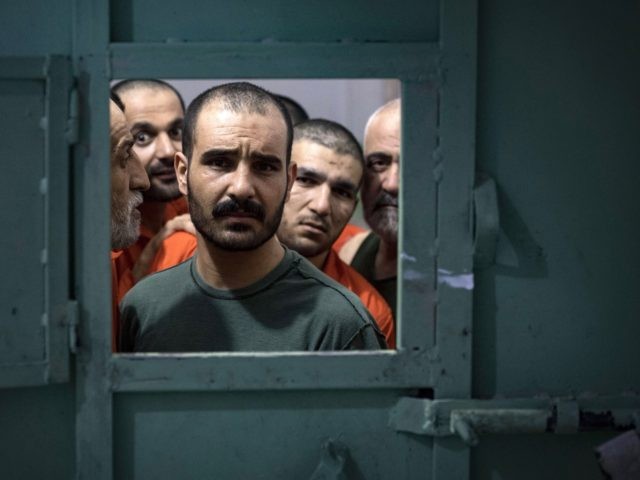Prime Minister Boris Johnson’s government is reportedly looking to modernise 650-year-old treason laws in order to make it easier to prosecute jihadis returning from the Middle East.
An overhaul of the treason statutes in Britain — set to be included in the Queen’s Speech on May 11th — will update what qualifies someone as an enemy of the state, including “acts of betrayal” such as joining foreign terrorist organisations or hacker networks.
The revamped legal framework will also reportedly shift the burden of proof to the individual when travelling to terrorist hot spots such as Iraq or Syria. Under current law, the government has to prove nefarious intent by those who travel to such regions, and gathering hard evidence of crimes in such places is extremely difficult.
The updated law would require that travellers justify their travel or immediately face prosecution for treason on returning to Britain.
“It’s something that various countries have — a system that says it isn’t necessarily legal to travel to a particular country or region. It’s about demonstrating a good legitimate reason, and very few people are going to southern Iraq or Syria because of the weather in August,” a Home Office source told The Times.
“At the moment for people returning to the UK you need to prove they have done something bad. This bill will reverse that. Those returning will need to prove they weren’t doing something bad, otherwise, they’ll face prosecution,” another source told the paper.
So far, some 400 terrorists with British citizenship have returned to the United Kingdom, yet only approximately ten per cent have been prosecuted. There are an estimated 300 terrorists believed to still be in the Middle East, with a further 200 killed on the battlefield.
82 Per Cent of Terrorist Prisoners in Europe Are Islamic Jihadists: Report https://t.co/RAEB12fREs
— Breitbart London (@BreitbartLondon) July 26, 2020
The reforms would make it easier to prosecute terrorists who come back to Britain as well as imposing harsher sentences, such as a maximum “life” term for having joined or supported a terrorist group.
The chairman of the House of Commons Foreign Affairs Select Committee, Conservative MP Tom Tugendhat, said: “We need tough sanctions for betrayal. We can’t wash our hands of those who spread terror abroad but can only deal with them if we’re willing to act and prosecute those who have betrayed our communities.”
A government spokesman added: “We make no apology for doing whatever is necessary to keep the UK safe from those who pose a threat. The individuals who remain in the conflict zone include incredibly dangerous individuals, many choosing to stay to fight or otherwise support [Isis]. They turned their back on this country to support a group that butchered and beheaded innocent civilians, including British citizens.”
Home Secretary Priti Patel is reported to be a driving force behind the change the treason laws, which date back to 1351 and were last used in 1946 against William Joyce — more commonly known as Lord Haw-Haw — an American-British Nazi sympathiser who would broadcast German propaganda into Britain during the Second World War.
Joyce was hanged in 1946 — a penalty that cannot be imposed on modern-day jihadists, as British politicians scrapped capital punishment in the 1960s and are now prohibited from reintroducing it by the European Court of Human Rights, a non-EU body to which Britain remains subject despite Brexit.
The push to impose harsher penalties on British jihadis is a marked shift from the previous Conservative government under former Prime Minister Theresa May, whose government sought a softer approach, even offering returning terrorists from Syria upscale public housing and even assistance finding work once back in the United Kingdom.
Theresa May’s government also admitted that “a significant portion” the 400 returned jihadis never faced prosecution and were considered “no longer of national security concern”.
Then-British anti-terror tsar Max Hill QC even went so far as to argue that punitive action against Islamic State defectors could create a “lost generation” in 2017. (Concerningly for some, he has since been appointed Director of Public Prosecutions for England and Wales.)
Some MPs have been urging the Tory leadership to update the treason laws for years now.
Supreme Court Orders ‘No Regrets’ Jihadi Bride Shamima Begum Cannot Return to UK https://t.co/fasHxrIGUD
— Breitbart London (@BreitbartLondon) February 26, 2021
Follow Kurt Zindulka on Twitter here @KurtZindulka

COMMENTS
Please let us know if you're having issues with commenting.